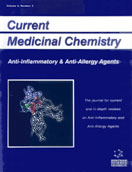Abstract
Allergen-specific T cells play a pivotal role in initiating and regulating the immune response to allergens, with T cell targeted strategies showing promise for improved specific immunomodulation of the adverse immune response in allergic diseases. Atopic allergic individuals respond to allergen stimulation by dominant secretion of IL-4 and IL-5 (Th2- type cytokines) in contrast to non-atopic individuals where there is predominant IFN-γ secretion (Th1-type). Clinically effective, allergen-specific immunotherapy (SIT) is accompanied by altered allergen-specific T-cell response, notably cytokine changes of decreased IL-4 and IL-5 to IFN-γ ratio (Th2 / Th1) and enhanced IL-10 secretion. Important contributing factors to these changes are likely to include the allergen concentration and form, adjuvants and antigen presenting cell type. Current regimens for SIT using high dose unfractionated allergen extracts injected incrementally via the subcutaneous route are limited by IgE-mediated adverse events, especially in asthmatic patients. Allergen derivatives with retained T cell reactivity but abrogated IgE binding should have higher efficacy and safety. Such derivatives include peptides containing dominant T cell epitopes of allergens and chemically-modified or recombinant mutant allergen molecules. Both approaches have been evaluated successfully in vivo in animal models and limited clinical trials. Th1-inducing adjuvants including bacterial components or virus-like particles, and DNA vaccines may also promote repolarisation of cytokine secretion from Th2-type to Th1-type but caution is needed as excessive IFN- γ secretion may invoke exuberant pathogenic inflammation. Alternative routes for allergen administration including intranasal, oral and sublingual are also under evaluation. Full elucidation of the mechanisms underlying safer, more effective SIT should facilitate wider clinical application in the treatment of allergic diseases and the availability of reliable laboratory assays for monitoring SIT efficacy based on T cell function.
Keywords: allergen, immunotherapy, th1/th2 polarisation, antigen presenting cell, adjuvant, t cell epitope, peptide, mutant allergen, dna vaccine
 2
2

